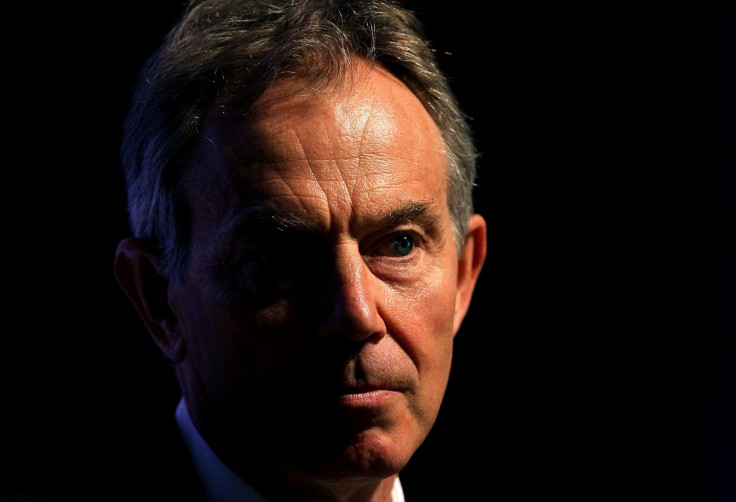Tony Blair's speech will only make Brexit negotiations harder for us
If he wanted to help, he would be addressing other EU leaders, rather than British voters, who despise him.

On the morning of 23 June, I was struggling to compose a tweet that would, in 140 characters, encourage undecided voters to plump for Leave. I had been working towards Brexit for 26 years. I had churned out hundreds of articles, blogs, tweets, pamphlets and books making the argument against EU membership. Now, on polling day itself, what was the pithiest way to appeal to last-minute waverers?
Then I saw it: a photograph of Tony Blair, wearing that silly house captainish expression he sometimes affects, brandishing a placard with "I voted REMAIN" in a handwriting-style font. I could think of no better way to galvanise the wobblers, and Tweeted that image with the words "He's voted. Have you? Polls open until 10.00pm".
Tony Blair used to be a blackbelt in electoral empathy. No one was better at reading and responding to public opinion. Of the eight Labour leaders in the past 40 years, seven failed to win a single general election; Blair comfortably won three. But that was then. A decade of schmoozing with Davos corporatists has evidently dulled his capacity to connect with voters.
Here was Tony Blair – Tony Blair, for Heaven's sake – urging the public to revolt against a policy that was, he claims, formulated "without knowledge". Thus did the man who invaded Iraq to eliminate its imaginary weapons programme collapse into self-parody.
"O wad some Pow'r the giftie gie us / To see oursels as others see us!" According to a new YouGov survey, just two per cent of Britons have a "very favourable" view of Tony Blair, as against 51 per cent "very unfavourable" – figures that put him roughly on a level with Vladimir Putin.
One of Tony Blair's tricks when he was Labour leader was to present himself as a moderate ranged against obsessive frondistes. He liked, for example, to dismiss the Conservatives as "the party of fox-hunting and Pinochet". He is now trying the same trick, repeatedly using the phrase "Brexit At Any Cost" to describe the government's stance.
That line is, in every sense, incredible. The Prime Minister voted Remain. So did three quarters of her Cabinet and two thirds of Conservative MPs. These are not maniacal Brexiteers. They are sober and serious politicians seeking the best outcome that is compatible with the referendum result, fair to our European allies and in line with our long-term interests.
The idea that the government has somehow been hijacked by dogmatic Leavers is pretty much the opposite of the truth. It would be more accurate to say that the Government is composed of sincere democrats who, having been given their instructions by the electorate, are now working to implement those instructions in the most favourable way. Voters, not politicians, are in the driving seat. According to ICM, 68 per cent of people feel that the government should "get on with implementing the result of the referendum" – up from 54 per cent in December.
Those figures are a reminder that most Remainers – including most Labour and Conservative MPs – have fair-mindedly accepted the result. Of course they still have concerns about the outcome, and some of those concerns are perfectly reasonable. They are right to want to keep many of our existing trade arrangements, for example. There may be other structural links – in policing, intelligence-sharing, research and education – that it also suits all sides to retain.
If Tony Blair truly wanted to help, he would be addressing other EU leaders, who still seem to have some regard for him, rather than British voters, who despise him. He would devote his energies to getting a deal with Brussels that preserved the things that he regarded as important, while allowing for a general repatriation of power in other areas.
Most Leavers recognise that the result was close, and are prepared to make compromises. We understand that controlling our borders doesn't mean closing them; that taking back sovereignty doesn't preclude replicating some of the existing arrangements through bilateral treaties; and that, given our history and geography, leaving the EU shouldn't simply leave us with a third-country relationship in the manner of, say, Australia.
The trouble is that, as long as there is an attempt to overturn the decision altogether, the process of compromise won't begin. It's not just that Leavers will feel that the campaign is still unfinished, and so won't engage; it's that the rest of the EU will be less likely to talk terms.
In other words, the only consequence of Tony Blair's intervention is to make some in Brussels more intransigent, in the false belief that, if they play hardball, Britain might reconsider. What the hell does he think he is playing at?
Daniel Hannan has been Conservative MEP for the South East of England since 1999, and is Secretary-General of the Alliance of European Conservatives and Reformists. Follow : @danieljhannan
© Copyright IBTimes 2025. All rights reserved.






















